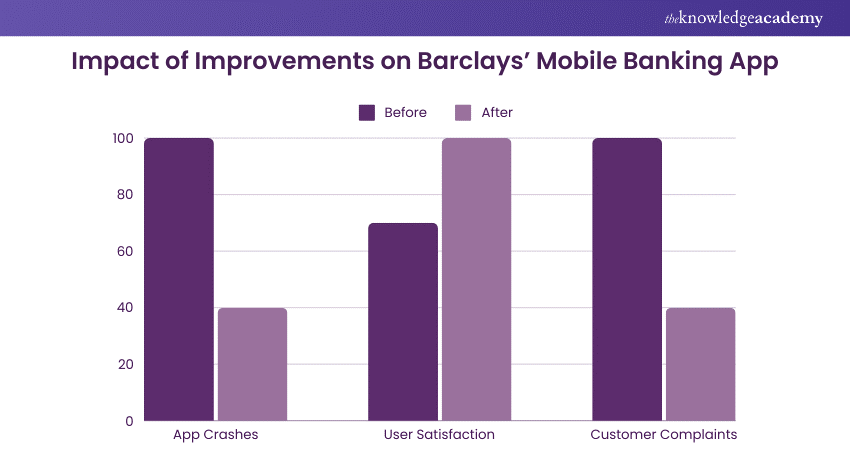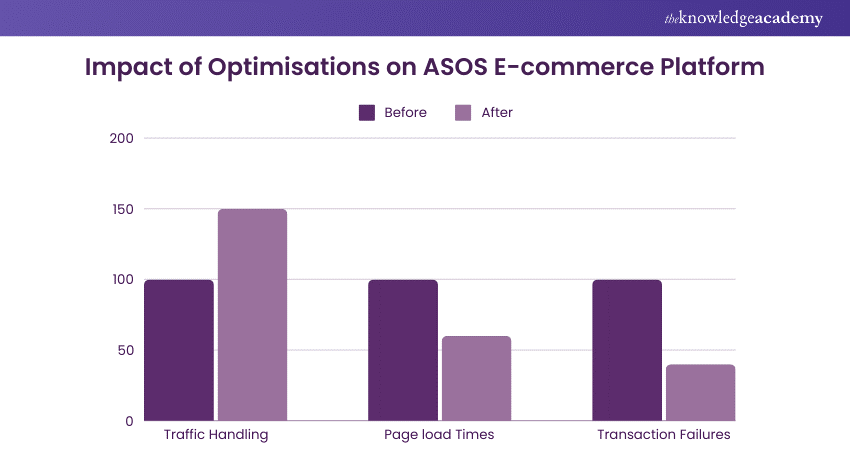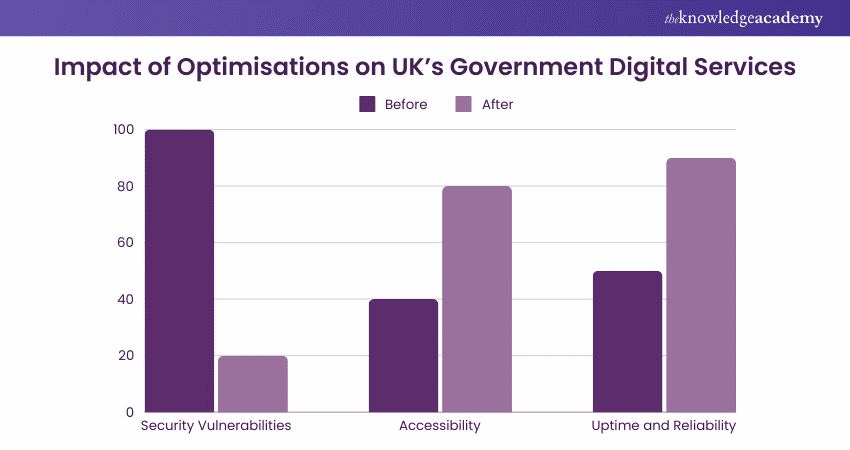We may not have the course you’re looking for. If you enquire or give us a call on +36 18508731 and speak to our training experts, we may still be able to help with your training requirements.
Training Outcomes Within Your Budget!
We ensure quality, budget-alignment, and timely delivery by our expert instructors.

Have you ever wondered how leading companies ensure their software is reliable and bug-free? Or what critical process they perform to check if a software application or system meets specified requirements. In this blog, we will discuss some real-world Software Testing Case Studies to uncover the strategies that drive successful testing outcomes.
Such examples will help you identify bugs, errors, and issues to ensure the software is reliable, secure and performs as expected. By thoroughly examining the Software Testing Case Studies, you can receive valuable knowledge on best practices, common challenges, and innovative solutions in Software Testing. Ready to enhance your understanding and elevate your testing game? Let’s dive in.
Table of Contents
1) Software Testing Case Studies
a) Example 1: Banking Software Enhancement at Barclays
b) Example 2: E-commerce Platform Optimisation at ASOS
c) Example 3: Government Digital Services Improvement
2) Conclusion
Software Testing Case Studies
Exploring real-world examples of Software Testing can give detailed insights into best practices and common challenges. These case studies highlight how different organisations have approached Software Testing to ensure quality and reliability. By examining these examples, you can gain a deeper understanding of effective testing strategies and methodologies.
Example 1: Banking Software Enhancement at Barclays
Company Overview:
Barclays, one of the UK's leading multinational banks, offers a huge range of financial services, that include personal banking, corporate banking, wealth management, and investment banking.
The Challenge:
Barclays' mobile banking app was experiencing a high rate of crashes and performance issues during peak usage times. Customers were frustrated by frequent downtimes and transaction errors, impacting the bank's reputation for reliability.
Objectives:
1) Improve the stability and performance of the mobile banking app
2) Reduce the number of customer complaints on app crashes
3) Ensure seamless and secure user experience during high-traffic periods
Approach:
1) Assessment and Planning:
a) Conducted a comprehensive review of the existing testing processes
b) Developed a detailed testing strategy focusing on performance and load testing.
2) Test Automation:
a) Introduced automated testing for critical functions of the mobile app
b) Created automated scripts to test various user scenarios and transactions
3) Performance and Load Testing:
a) Conducted extensive load testing to simulate peak usage conditions
b) Identified and addressed performance bottlenecks
4) Continuous Testing:
a) Implemented continuous integration and continuous testing (CI/CT) to ensure new updates were thoroughly tested before release.

Results:
a) Reduced app crashes by 60%
b) Improved app performance, leading to a 30% increase in user satisfaction
c) Decreased customer complaints regarding app issues, enhancing the bank's reputation.
Boost your Agile Testing skills with our ISTQB Agile Foundation Extension Training - secure your spot today!
Example 2: E-commerce Platform Optimisation at ASOS
Company Overview:
AsSeenOnScreen (ASOS), a leading UK-based online fashion retailer, caters to customers worldwide with a vast range of clothing, accessories, and beauty products.
The Challenge:
ASOS faced challenges with its website's performance during major sales events. High traffic volumes led to slow page loads and transaction failures, resulting in lost sales and customer dissatisfaction.
Objectives:
a) Ensure the website can handle high traffic volumes during sales events
b) Improve overall website performance and user experience
c) Minimise transaction failures and abandoned carts
Approach:
1) Assessment and Planning:
a) Analysed the existing infrastructure and identified key performance issues
b) Developed a testing plan focusing on load and stress testing
2) Load and Stress Testing:
a) Simulated high-traffic conditions to identify potential points of failure
b) Implemented solutions to enhance the website's scalability and resilience
3) Performance Optimisation:
a) Optimised backend processes and database queries to improve response times
b) Streamlined the front-end code for faster page loads
4) Continuous Monitoring:
a) Established real-time monitoring to track website performance during peak times.
b) Quickly addressed any issues that arose during high-traffic periods

Results:
a) The website handled a 50% increase in traffic without performance degradation
b) Page load times improved by 40%, enhancing the user experience
c) Significant reduction in transaction failures, leading to higher sales conversion rates.
Become a Certified Tester with our ISTQB Software Testing Foundation Course - register now and boost your skills!
Example 3: Government Digital Services Improvement
Organisation Overview:
The UK Government Digital Service (GDS) is responsible for digital transformation across government departments, ensuring public services are simple, efficient, and user-friendly.
The Challenge:
Several government websites and digital services experienced frequent downtime and security vulnerabilities, impacting public access to essential services.
Objectives:
a) Enhance the reliability and security of government digital services
b) Improve user accessibility and experience
c) Guarantee compliance with Data Protection and Cyber Security standards
Approach:
1) Assessment and Planning:
a) Conducted a thorough assessment of existing digital services
b) Developed a comprehensive testing strategy focusing on security and accessibility
2) Security Testing:
a) Implemented rigorous security testing to identify and mitigate vulnerabilities
b) Conducted regular penetration testing and security audits
3) Accessibility Testing:
a) Ensured all digital services met UK accessibility standards
b) Conducted user testing with diverse groups to identify and address accessibility issues
4) Continuous Improvement:
a) Established a continuous improvement framework to regularly update and enhance digital services.
b) Implemented real-time monitoring to quickly identify and resolve issues.

Results:
a) Enhanced security posture, reducing vulnerabilities by 80%
b) Improved accessibility, making services easier for all citizens to use
c) Increased uptime and reliability, leading to higher user satisfaction and trust in government services.
Master Test Management skills with our ISTQB Advanced Level Test Manager Course - book your spot now!
Conclusion
Software Testing Case Studies provide a treasure trove of insights into effective testing practices and innovative solutions. By learning from these real-world examples, you can significantly enhance your testing strategies. Alongside this, it will help you ensure superior software quality.
Advance your testing expertise with our ISTQB Advanced Test Analyst Course - sign up now!
Frequently Asked Questions

A good software test case is clear, concise, and comprehensive. It specifies the input, expected output, and steps to execute. It covers positive and negative scenarios, ensuring thorough validation of the software's functionality.

To write a test case, define the objective, provide a detailed description, list preconditions, outline steps to execute, specify expected results, and include post-conditions. Ensure clarity and completeness for accurate and reproducible testing.

The Knowledge Academy takes global learning to new heights, offering over 30,000 online courses across 490+ locations in 220 countries. This expansive reach ensures accessibility and convenience for learners worldwide.
Alongside our diverse Online Course Catalogue, encompassing 17 major categories, we go the extra mile by providing a plethora of free educational Online Resources like News updates, Blogs, videos, webinars, and interview questions. Tailoring learning experiences further, professionals can maximise value with customisable Course Bundles of TKA.

The Knowledge Academy’s Knowledge Pass, a prepaid voucher, adds another layer of flexibility, allowing course bookings over a 12-month period. Join us on a journey where education knows no bounds.

The Knowledge Academy offers various Software Testing Courses, including the ISTQB Agile Foundation Extension Course, Certified Software Testing Professional (CSTP) Course, and Unit Testing Course. These courses cater to different skill levels, providing comprehensive insights into Software Unit Testing.
Our Business Analysis Blogs cover a range of topics related to Software Testing, offering valuable resources, best practices, and industry insights. Whether you are a beginner or looking to advance your Software Testing skills, The Knowledge Academy's diverse courses and informative blogs have got you covered.
Upcoming Business Analysis Resources Batches & Dates
Date
 ISTQB Software Testing Foundation
ISTQB Software Testing Foundation
Mon 6th Jan 2025
Mon 3rd Feb 2025
Mon 17th Feb 2025
Mon 3rd Mar 2025
Mon 17th Mar 2025
Mon 31st Mar 2025
Mon 28th Apr 2025
Mon 19th May 2025
Mon 2nd Jun 2025
Mon 16th Jun 2025
Mon 30th Jun 2025
Mon 14th Jul 2025
Mon 28th Jul 2025
Mon 11th Aug 2025
Mon 8th Sep 2025
Mon 22nd Sep 2025
Mon 6th Oct 2025
Mon 20th Oct 2025
Mon 3rd Nov 2025
Mon 17th Nov 2025
Mon 1st Dec 2025
Mon 15th Dec 2025







 Top Rated Course
Top Rated Course



 If you wish to make any changes to your course, please
If you wish to make any changes to your course, please


